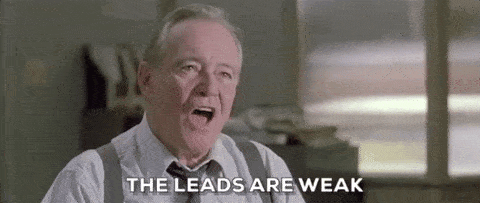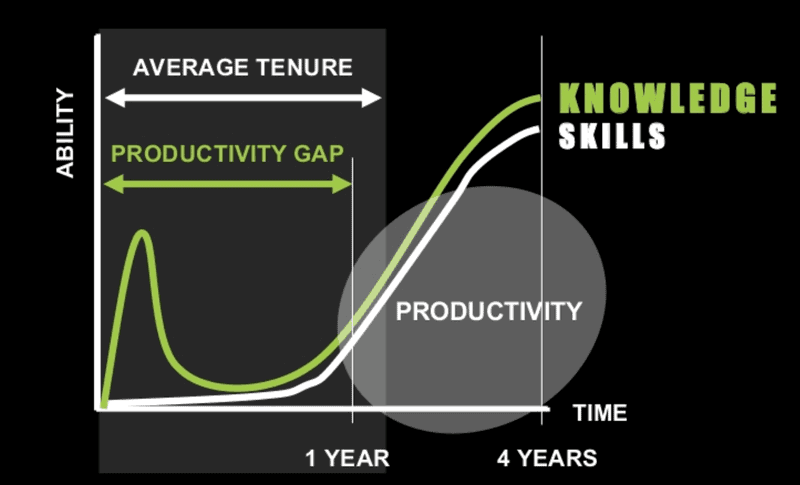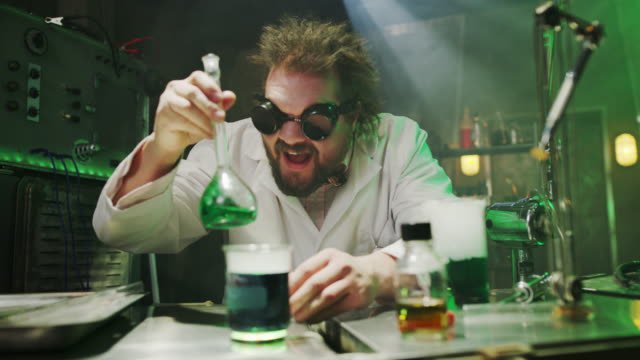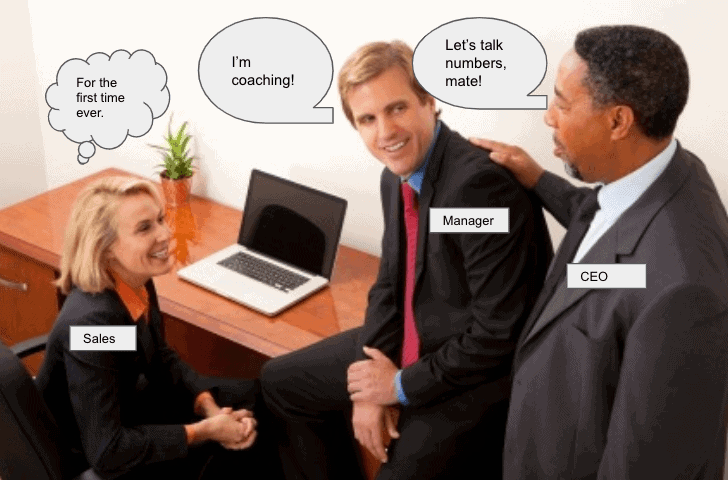Aaron Ross, the author of Predictable Revenue, famously advocates the splitting of roles according to specialization as People do few things better. When I first read his book, I did not really question his reasoning, but now see more and more successful SaaS companies adopting a full-cycle model again (think of Drift and Shopify), which got me thinking about the appropriate scenario that would demand a full-cycle reps setups.
What is sales specialization?
I'm preaching to the choir here, but here is a quick definition: Sales specialization is the process of having multiple sales reps focus on different functions in the sales process. The most common specialization process is the sales development representative (SDR) [also called business development representative (BDR)]; Account Executive (AE) split, where the SDR prospects a lead and the AE closes it. Nevertheless, we can specialize as granular as we want by i.e. industry, customer size or acquisition method (inbound & outbound).
Why are we specializing?
Effectiveness
At the core, specialization is probably a brainchild of economist Adam Smith that wanted to increase the effectiveness of workers by giving them a smaller specialized task. The effectiveness is also underlined by data, as XANT points out that well-specialized organizations have a 7% higher closing rate than non-specialized organizations.
Focussed training
Let's take the example of an SDR, in an average company the SDR is responsible for research, prospecting, and qualifying. Whilst the AE is responsible for the discovery call, demoing and closing. Asking one person to be trained and onboarded on six vs. three functions is arguably not double as hard, but more difficult due to our inability to multitask.
Tailored improvements
If you're fixing a process it's easier to fix a process of three steps than one that comprises six. Specialization makes singling out areas of improvement easier and thus also the correction thereof.
Clear career development
Specialization allows reps to grow within a role from SDR to AE and further, which makes it easier for companies to quench the thirst of ambitious new sales reps to progress in their career.
On a more practical note, Aaron Ross names three arguments for specialization resulting from the nature of sales reps:
- Experienced salespeople are terrible at prospecting
- Experienced salespeople hate prospecting
- Once a salesperson has built some pipeline, they will be too busy closing instead of prospecting further. (Time management)
So why would anyone bet on full-cycle reps?
Customer Experience
Sales specialization done badly is like calling customer service with a problem and having to explain yourself over and over again to new service clerks, as you are always being reconnected to someone else who actually is in charge of these things.
Thinking of it makes me mad, but this doesn't mean that specialization necessarily means bad customer experience. Let's take the same anecdote and assume that every rep that you speak to, accurately communicates your situation to the next customer service clerk and actually directs you to the one person that can help you immediately and who is a specialist in your issue – great customer experience. Perfect customer experience, however, would be if one rep can take you from the first touch to close.

Discovery Call
Winning By Design and others argue that the SDR/BDR should own the discovery call and push fully-qualified opportunities to the AE. I have a long-standing belief that discovery calls are too important to be left to junior SDRs, as they not only qualify the lead but also awake its interest by uncovering and stressing an often latent pain in the mind of a prospect. This requires serious skills to SPIN sell and to project the authority to challenge a prospect on their assumptions.
When you read books about time management, you hear that doctors have actually done a good job of becoming more effective in their work, by delegating non-essential tasks to assistants. However, they never delegate the actual conversation with a patient to diagnose illnesses to someone else. The diagnosis is vital to build trust with the patient and to properly uncover the root causes for someone's suffering. The only delegation that is appropriate in this situation is initial information gathering to prep the doctor by an assistant and to reject those patients that come with a hangover to a brain surgeon to cure their headaches. In a sales context that would mean that an SDR/BDRs should do the bare minimum of qualification, whereas the actual discovery call should be made an AE or ideally by one full-cycle rep.
Ownership & Transparency
How often have you heard AEs complaining about the amount and quality of leads that come from marketing? Some AEs rather operate at 50% capacity, than to get up and improve upon their own situation. Granted, this shows a culture of low accountability, but it can be witnessed more and more.

I'm not a fan of 'Always be closing', but I would agree with Alec Baldwin's response in Glengarry Glen Ross 'You are weak!'. As salespeople we used to be rainmakers for companies, making something from nothing. Nowadays, we are rain barrels catching the deals that marketing or our SDRs are throwing at us. A culture of blaming others for poor performance can be avoided by simply making salespeople responsible for the entire process from prospecting to closing (not onboarding & farming, that goes too far).
Efficiency
Instead of paying for an SDR and an AE, you pay for only one full-cycle rep. Arguably, the training for that person will take longer and thus it will be more expensive, but Loren Padelford, Chief Sales Scientist at Shopify Plus, claims that he hasn't seen any company that has beaten his full-cycle sales efficiency.
Longevity
Collin Cadmus, VP of Sales at Aircall, recently went on the Predictable Revenue podcast and spoke about why 'The SDR model is broken'. His main points are that the complexity of the SDR job has increased dramatically with more complex products, more outreach channels and more demanding buyers, whilst the job tenure of SDRs become shorter and shorter. Jacco at Winning By Design calls this issue the 'productivity gap'.

Collin Cadmus suggests two changes to the status quo 1. allow SDRs to make serious money in their role to incentivize 'career SDRs' 2. elevate the reputation of the SDR role from 'entry-level' to 'crucial for the org'. Nevertheless, the problem of short job tenure is a systemic one, as other companies can easily recruit those SDRs away from your company by promising more salary and/or a new shiny title. Hence, I think that it is easier to change what is under your direct control (switching to full-cycle) than to change the general perception of a job title if you are faced with the 'productivity gap' problem.
Conclusion
Should you specialize? It depends.
Inbound and outbound should definitely be separated. Why? Because as John Barrows has eloquently put it: Sales reps would hunt the shittiest inbound lead, before making an outbound phone call.
Specialization by industry & markets is also advisable, once your organization begins to scale. I'd argue that inbound sales specialization according depends on the nature & 'warmth' of a lead. Inbound BDRs should qualify cold inbound leads (webinar signups & white paper downloads); whereas Inbound AEs should own the full-funnel for warm leads (trial signups, demos).
The question is more urgent in the field of outbound sales. The dominant case for outbound specialization (SDR/AE split) is surely much weaker if you come to appreciate the arguments of the opposition. However, I think everyone needs to look at their own organization and check their own personal bias to figure out what would work.
A few characteristics that could indicate a bias for one of the choices:
+ Specialization:
- A steady Leads per Rep ratio
- Non-executive target group
- Mature company
- Easier to recruit & train
+ Full-cycle (prospect to close)
- High ACV
- Longer sales cycles
- Very senior target group
- Bias towards 'ownership' and sales should be self-sufficient
- Early-stage company
Changed your mind?
Specialized sales towards full-cycle sales
If you have already opted for specialization, a transition to full-cycle sales will definitely not be easy and some stubborn sales reps will likely leave you. Thus, I think it is wise to consider these changes in the early stages of your company.
Nevertheless, sometimes one needs to pivot towards full-cycle sales. We all know that there are periods where leads are slow. I have seen a lot of companies, where AEs would start fiddling their thumbs and wait for leads, instead of prospecting themselves. At the core, this is an accountability issue. Nonetheless, AEs are still salespeople and should be held accountable for the commercial growth of companies. This scenario has two solutions, let some AEs go to get a healthy Leads per AE ratio again OR transition to a full-cycle model and take fate in your own hands – I think the latter is the most sensible and long-term solution.
Full-cyle sales towards specialized sales
This transition is certainly an easy sell to a full-cycle rep.
Want to learn more?
Tom van Berkel and I are organizing a 1-day course on the 18th of March in Amsterdam. Visit the course website here or get tickets here for more information or schedule a chat with me via the following link to discuss your learning objectives:



